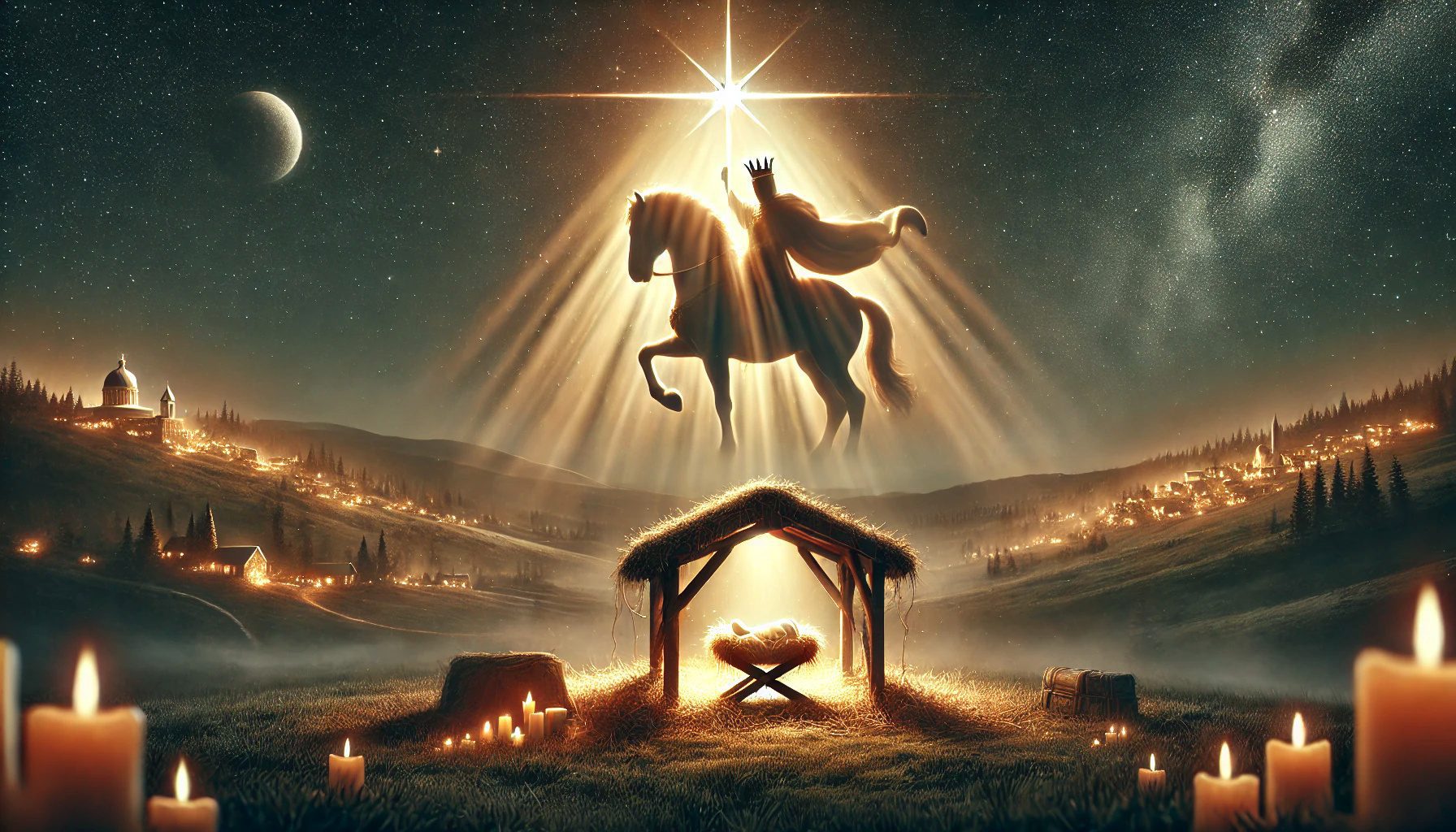In this Christmas season, let’s remember the promise of the savior:
“But you, O Bethlehem Ephrathah, who are too little to be among the clans of Judah, from you shall come forth for me one who is to be ruler in Israel, whose coming forth is from of old, from ancient days.” (Micah 5:2, ESV)
As Christmas approaches, it’s natural to reflect on its deeper meaning. For Christians, Christmas is the celebration of God fulfilling His promise of a Savior, yet it also serves as a reminder of a promise still to come. To fully grasp the significance of the nativity, we must first step back to understand what the Jewish people expected from their Savior.
A Longing for Deliverance
For centuries, the Jewish people lived with the hope of a coming Messiah. Prophecies scattered throughout the Old Testament described this Savior in remarkable detail. Isaiah spoke of a virgin conceiving and bearing a son called Immanuel, which means “God with us” (Isaiah 7:14). Micah foretold His birth in Bethlehem, while Zechariah hinted at a King who would bring peace and righteousness.
The expectation of the Savior wasn’t merely theological; it was deeply practical. For the Jews, the Messiah represented liberation. Many expected Him to break the yoke of Roman oppression and restore Israel as a powerful, independent kingdom. He was to be a deliverer, a King, a source of unshakable hope.
But when Jesus came, He defied many of those expectations. Born in a stable to a humble family, His mission wasn’t political but spiritual. His kingdom was not of this world (John 18:36). Instead of overthrowing Rome, Jesus came to overthrow sin and death, delivering humanity from bondage far greater than that of any earthly empire.
The Christmas Fulfillment
Christmas celebrates the culmination of God’s plan to bring salvation to the world. The angel’s announcement to the shepherds captures the essence of this fulfillment:
“Fear not, for behold, I bring you good news of great joy that will be for all the people. For unto you is born this day in the city of David a Savior, who is Christ the Lord.” (Luke 2:10-11, ESV)
Jesus’ birth signaled the arrival of hope for all people—not just for Israel, but for everyone who would place their trust in Him. The Savior came to reconcile us to God, to bear our sins on the cross, and to rise again, conquering death once and for all.
The gift of salvation that began with the manger was completed at the cross and the empty tomb. This is why Christmas is so joyous. It reminds us that God keeps His promises. The Messiah came, just as He said He would. He lived among us, taught us, and redeemed us.
Yet even as we rejoice in the completed work of Christ, we are reminded that the story isn’t over.
A Promise Yet Unfulfilled
Before ascending into heaven, Jesus gave His disciples a promise:
“And if I go and prepare a place for you, I will come again and will take you to myself, that where I am you may be also.” (John 14:3, ESV)
The Savior who came to Bethlehem will return. This is the unfulfilled part of the Christmas story, the continuation of God’s promise of deliverance. Just as the Jews waited for the Messiah’s first coming, we now wait for His second coming.
But unlike the uncertainty that surrounded His first arrival, we know how this story ends. Revelation paints a picture of Jesus’ return, not as a humble baby but as a victorious King:
“Then I saw heaven opened, and behold, a white horse! The one sitting on it is called Faithful and True, and in righteousness he judges and makes war.” (Revelation 19:11, ESV)
This promise should fill us with hope and urgency. Hope, because Jesus will return to wipe away every tear and make all things new. Urgency, because His coming will be sudden, and we must be ready.
Living Between the Advents
What does it mean to live between the two advents of Christ? First, it means living with gratitude for what God has already done. The birth of Jesus was the ultimate expression of God’s love for us, and we should respond by loving Him in return through faithful obedience and worship.
Second, it means living with expectant hope. The second coming of Christ is not a vague idea or a far-off dream. It is a certain reality. As the Apostle Paul wrote, “For the grace of God has appeared, bringing salvation for all people, training us to renounce ungodliness and worldly passions, and to live self-controlled, upright, and godly lives in the present age, waiting for our blessed hope, the appearing of the glory of our great God and Savior Jesus Christ.” (Titus 2:11-13, ESV)
Finally, it means proclaiming the good news. Just as the shepherds shared the joy of Jesus’ birth, we are called to share the hope of His return. This is not a time for complacency. The Savior has come, and He is coming again.
A Call to Remember
As you celebrate Christmas this year, let it be more than a time of exchanging gifts or enjoying traditions. Let it remind you of God’s faithfulness. He fulfilled His promise in Bethlehem, and He will fulfill His promise again when Christ returns.
The joy of Christmas is not confined to a single day or even a single event in history. It stretches from the manger to the cross and beyond, all the way to the glorious day when the Savior will return to make all things new.
So live with purpose, love with abandon, and prepare your heart for the King. The story of Christmas isn’t finished yet—and the best is yet to come.
Merry Christmas!
Your brother in Christ,
Duane

This is amazing information in a very good outline!